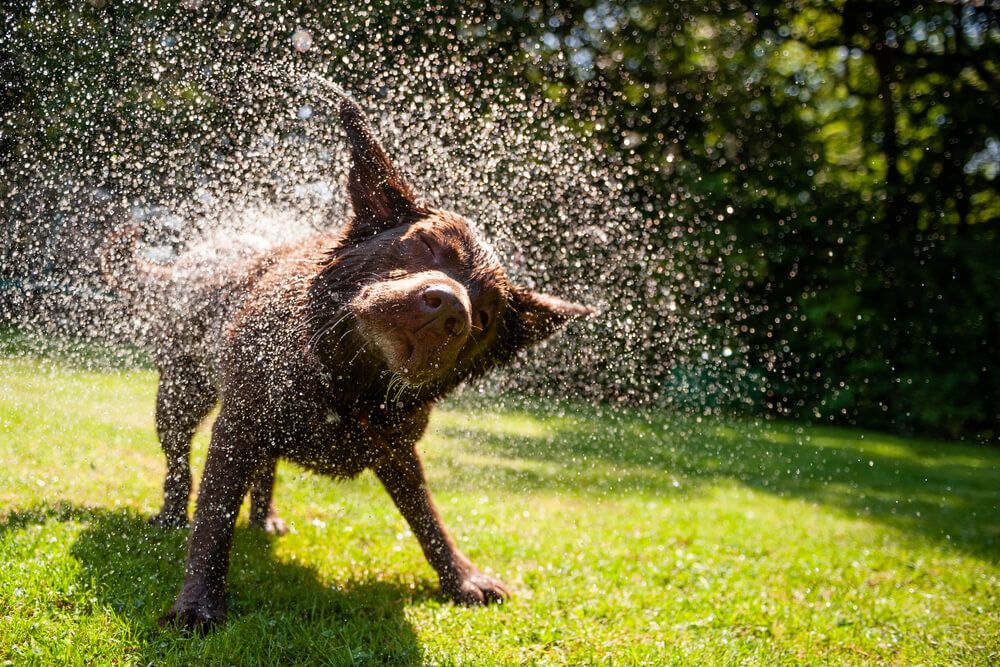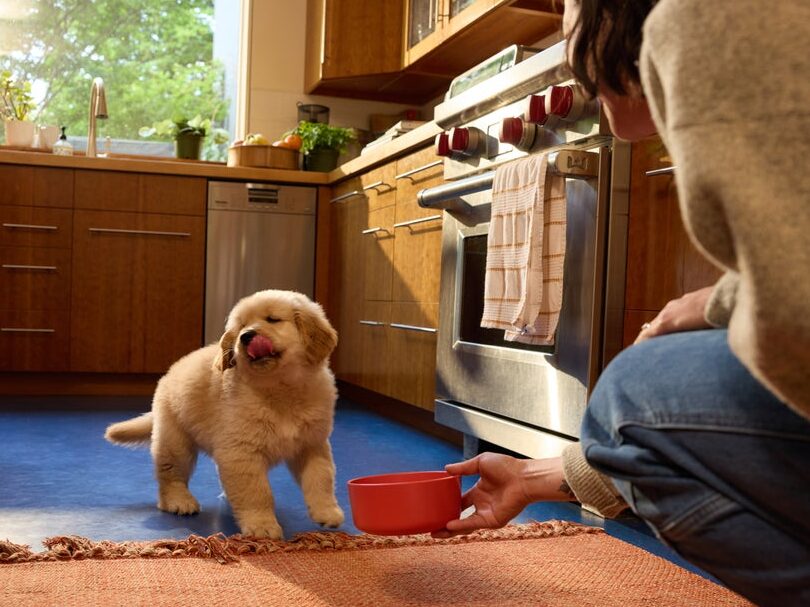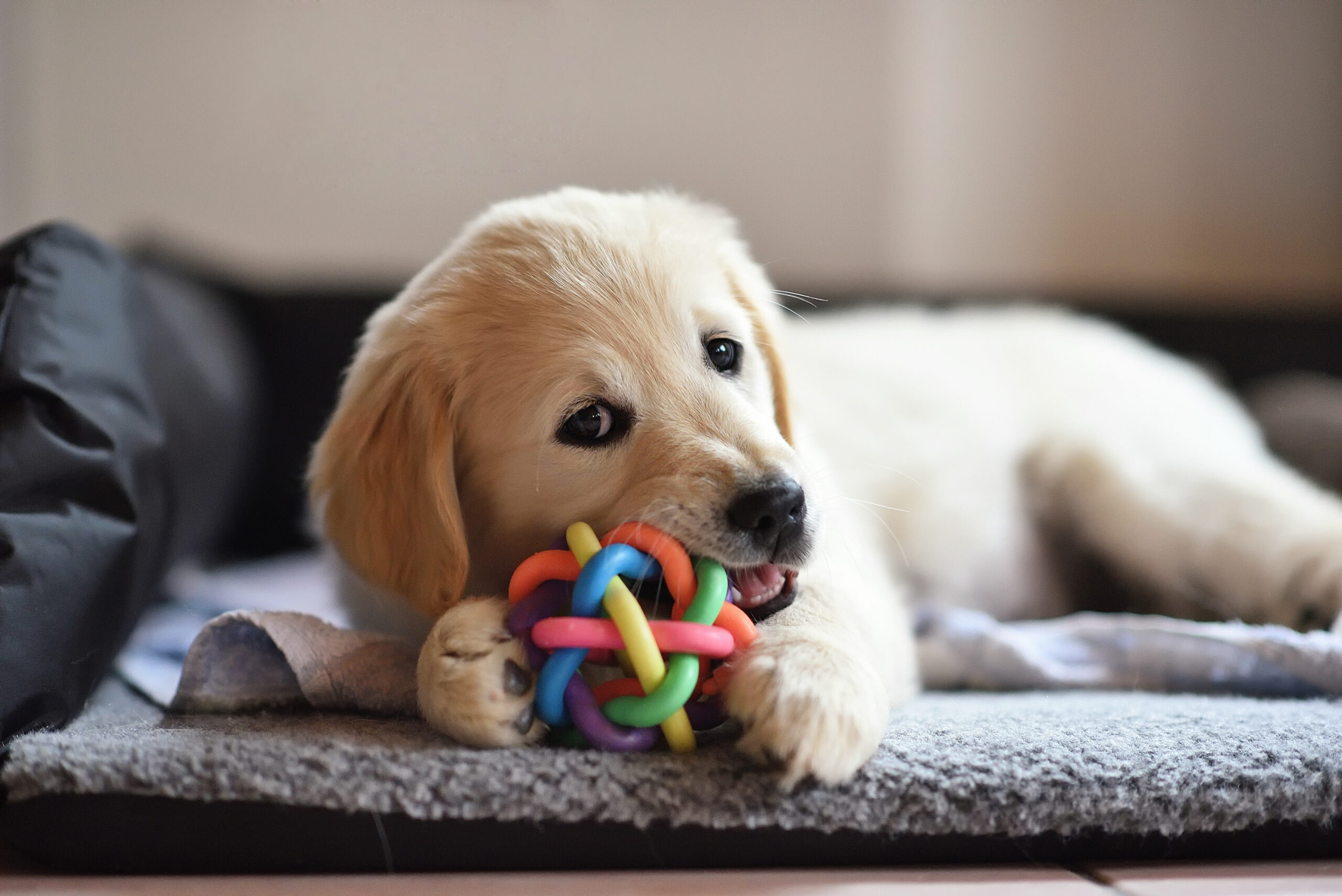Hey Ollie blog readers! We’re offering you an exclusive 60% OFF your starter box! Try now!
Have you noticed your dog shaking their head more than usual? You might be concerned about this behavior, especially if your pup is doing it consistently. We looked at the most common reasons your dog might be shaking their head – and when it’s cause for concern.
Four reasons your dog might be shaking their head
1. Dirt, debris, or water in the ear canal

One simple reason your dog might shake their head is that something is in their ear. Walking through the city, hiking, or even heading out for a swim can cause dirt, debris or water to get into your pup’s ear. Even when giving your dog a bath, water can get trapped in your dog’s ear causing discomfort. While some dirt, debris, or water is generally not a concern, it is important to clean your dog’s ears regularly. After a swim or a bath, check to make sure your dog’s ears are clean and dry to avoid issues like infection. If you see your dog shaking their head, a quick ear cleaning will be the first step to assessing the cause of the issue.
2. Ear infection
If your dog has an ear infection, shaking their head may be just one symptom. The other signs you’ll want to look for are redness, swelling, pain, and a strong odor coming from your pup’s ear. If your pup does have an ear infection, you’ll want them to see the vet for treatment. The vet will need some information to diagnose the infection correctly. Be prepared to discuss symptoms and when they seemed to start. While most ear infections respond well to treatment (medicated ointments or antibiotics) some dogs will have ear infections that reoccur. If your dog is prone to ear infections it’s important that you check their ears frequently and watch for symptoms so they can be treated before they get worse. Your vet may give you specific instructions for ongoing care to prevent infection and it’s important that you follow these instructions carefully.
3. Ear hematoma
Dogs with long, floppy ears are at risk of developing hematomas (either called ear hematomas or aural hematomas). This is when a blood vessel in the ear bursts and blood pools in the space between the ear cartilage and the skin. If your dog has an ear infection and is vigorously shaking their head, this can actually cause a hematoma to form, which might make your dog want to shake their head more. If your dog develops a hematoma, you’ll want to take them to the vet to have it drained. Once this procedure is complete, the vet will provide instructions to help you care for your pet and avoid developing additional hematomas.
4. Allergies (itchy ear)

If your dog has allergies they may have itchy skin, faces, and even ears. The itchiness in their ears can cause them to want to shake their heads. If your dog’s ears are clean and infection-free, and your dog is still shaking their head, you may want to rule out allergies as a cause. This could be either food allergies or more commonly environmental allergies. Try to keep track of when your dog is shaking their head as that might give your vet a clue as to what allergen is causing your pup’s issues.
Is your dog shaking their head or their whole body?
Some dogs will shake their whole bodies after a bath or swim, or when they’re stressed. Context matters here – if your dog is just shaking off after some fun in the pool or a bath – it’s likely just to repel the excess water. If your dog is shaking after hopping on the exam table at the vet, after a big hug or meeting someone new, they might be trying to shake off some stress. If your dog is stressed, they may also lick, yawn, or try to move away from their stressor.
Learning to decode your dog’s head or body shakes can help you bond with your pup and help you to take better care of them.
The Ollie blog is devoted to helping pet parents lead healthier lives with their pups. If you want to learn more about our fresh, human-grade food, check out MyOllie.com.
Tagged As:

The nutrition your dog needs,
the food they want.

Enjoying our articles? Subscribe our Newsletters and get new articles directly to your inbox
You might also like
13 May 2025
8 MINS READ
Puppy Training Guide & Behavior Timeline
Bringing home a puppy is pure magic. It’s also pure chaos—tiny teeth, zoomies, accidents in the house, and moments that make you wonder if you’re raising a future genius or a tiny tornado. …
by Ollie Pets
10 May 2025
12 MINS READ
New Puppy Checklist: Guide To Prepare For A New Dog
Bringing home a new puppy? This checklist covers everything new dog owners need—from essential supplies to training, feeding, and first vet visits.
by Ollie Pets
3 April 2025
9 MINS READ
Home Remedies for Fleas on Dogs: 10 Natural Ways That Actually Work
Wondering what kills fleas on dogs instantly and naturally? If your pup is scratching like crazy, it may be time to take action. In this guide, we’ll show you the most effective home remedies for…







